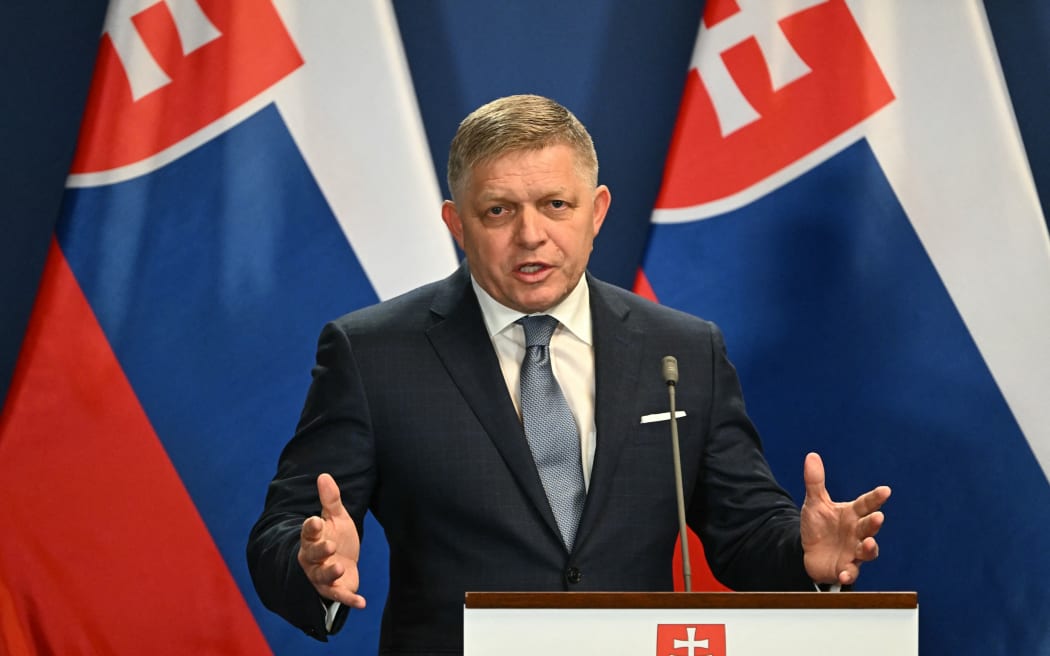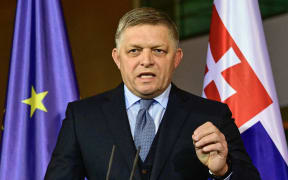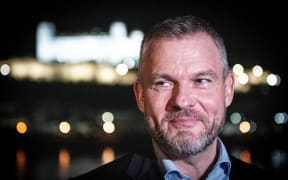
Slovakia's Prime Minister Robert Fico at a press conference in January. Photo: AFP
By Michelle Rimmer and Cameron Nicholls, London
He's a veteran politician who's been likened to Donald Trump and changed his position on several key issues affecting his tiny European nation.
All but the most keen political buffs abroad will be hearing the name Robert Fico for the first time right now, and for all the wrong reasons.
Fico - Slovakia's longest-serving prime minister - sustained life-threatening injuries after being shot while leaving a government meeting in the central city of Handlova on Wednesday.
The 59-year-old was airlifted to a hospital where he is receiving treatment. The suspected shooter was arrested at the scene.
Slovak Interior Minister Matus Sutaj Estok said authorities suspected the attack was politically motivated.
The populist leader has successfully courted votes over two decades with a chameleon-like ability to adapt to changing public sentiment that has seen him elected on four separate occasions.
He won his first election in 2006 and most recently voted in last year in September.
Riding that wave of public opinion, Fico has transformed from a pro-European Union interventionist to a fierce nationalist parroting Russian anti-western rhetoric.
European politics professor at the University of Birmingham Tim Haughton said the latest iteration of Prime Minister Fico was the most divisive yet.
"Essentially everything he's done is kind of undermining democracy, the rule of law in Slovakia, so he's a very polarising figure," Haughton said.
"He's the kind of love-me-or-loathe-me politician, so sections of the Slovak electorate really love him and think that he's fantastic and he delivers the goods for them, the other half think that he's terrible."
Journalist's murder led to resignation
Slovakia is a land-locked, former-Soviet state in eastern Europe, wedged between Hungary, Austria, Czechia, Poland and Ukraine. About 5.5 million people call it home.
The son of a forklift driver and a shop worker, Fico grew up in the small town of Topolcany in Slovakia's west.
He moved to the capital Bratislava for university, where he joined the communist party as a 23-year-old.
Twelve years later, in 1999, he founded the Slovak Social Democracy party (Smer) as a breakaway.
Smer (which means "Direction" in English) is a left-wing populist and nationalist party with a socially conservative and anti-immigration stance.
After serving in opposition for seven years, Fico first took office in July 2006.
He briefly returned to opposition in 2010 but was once again victorious at the elections two years later.
He resigned in 2018 over a political crisis prompted by the murders of an investigative journalist and his fiancé.
Police ruled the deaths were "most likely" related to an article the journalist had written on alleged ties between Slovakia's top politicians and the Italian mafia.
The murders fuelled the biggest protests in the country since the fall of communism and prompted demands for the government to be overhauled.
Fico stepped down as prime minister but remained party leader and won back public approval in the four years that followed.
'This government has certainly made its enemies'
During the 2023 election campaign, the party promised to end military aid to Ukraine, remove EU and US influence from Slovak foreign policy and to keep migrants out of the country.
Those moves have seen him likened to Hungary's renegade leader Viktor Orban.
The party won power as part of a coalition deal and has since introduced sweeping policy changes that aim to silence critics, limit media freedoms and pulled away from the west.
For example: in April, Fico's government approved a controversial blueprint to scrap public broadcaster RTVS and replace it with a state-run set-up.
His policy platform has also included abolishing a key anti-corruption office.
Haughton said these policy changes increased divisions in Slovakia in recent months.
"There've been quite a lot of demonstrations in response to the measures that the Fico government brought in after he was re-elected," he said.
Expert in political science at University College London Dr Michal Ovádek said Slovak society was "more polarised than ever" and that the government's divisive policies are central to this.
"This government has certainly made its enemies with its policies on a number of topics which are democracy related," Ovádek said.
"Polarisation, logically, might, result in some extreme events, over time...Having said that, of course, there's nothing inevitable about any assassination attempt in any country, against any politician."
- ABC



